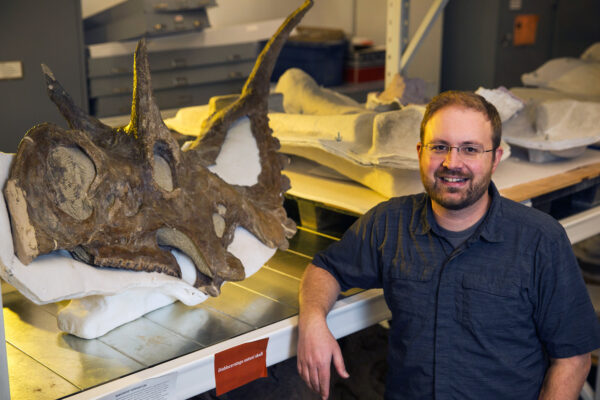The Tropical Icehouse: A 300-million-year-old Record of Climate and Ecosystem Change
Wednesday, December 4, 2024 @ 1pm – CSL 422
watch remotely with zoom

Abstract
The Late Paleozoic Ice Age (LPIA) is the last time the Earth experienced icehouse conditions prior to its current climate state. As such, the LPIA and its subsequent demise leading to the Mesozoic greenhouse makes it an important geologic analog for comparison with ongoing anthropogenically-caused global warming that could induce a future global state change. During the Carboniferous-Permian transition between 305-290 million years ago, not only did the LPIA reach its apex and begin its subsequent decline as warming initiated, but ecosystems on land took their first steps towards a modern aspect, with the first fully terrestrial limbed vertebrate animals (hard-shelled egg-laying amniotes), the first vertebrate herbivores, and the iconic sail-backed mammal ancestor Dimetrodon. Randy’s talk will investigate how the sedimentary archives of the Cutler Group in southern Utah record the tropical expression of both the distant waxing and waning of LPIA ice sheets and a key fossil record of these equatorial ecosystems on land during the Carboniferous-Permian transition. The talk will further examine whether the evolution of the first fully tetrrestrial vertebrate communities was potentially driven by this Ice Age.

